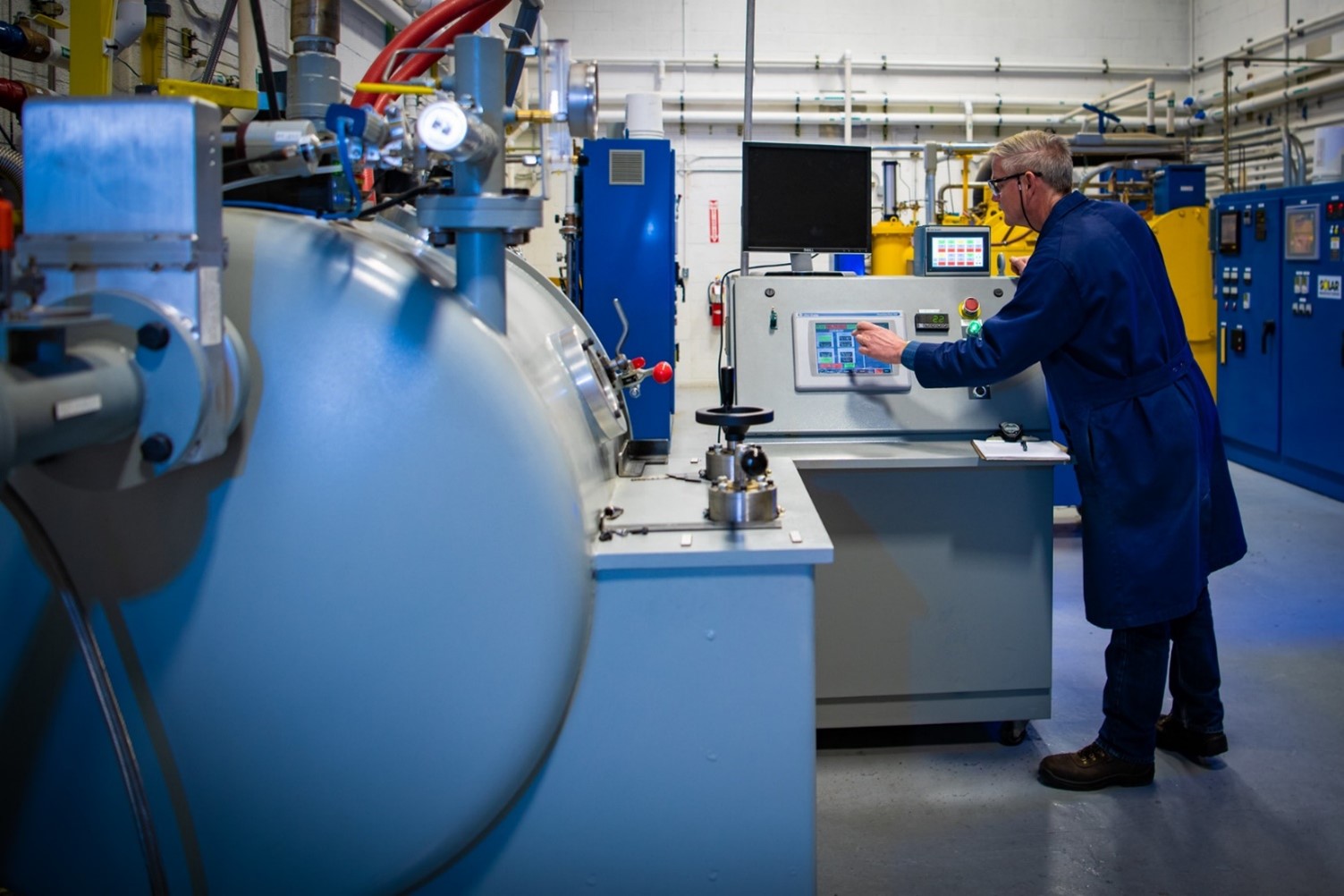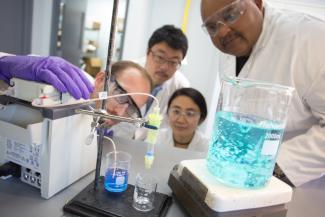NETL is leading the Center for Sustainable Fuels and Chemicals (CSFC), a focus to help the U.S. chemicals industry retool products and operations for a sustainable future that strengthens domestic manufacturing as the nation transitions to clean energy.
“New strategies and technologies are needed to decarbonize the chemicals industry. Our work establishes an NETL-led technology incubation center and will seek to develop collaboration with industry to assist the downstream chemicals sector in their decarbonization, as well as carbon management and sustainability efforts. The center will work on technologies that remain too risky or far-term for the private sector to develop alone,” said Dr. Charles Damianides, the new CSFC Executive Director.
The center’s work to develop technologies to produce chemicals without emitting carbon dioxide (CO2) and other greenhouse gases supports priorities set by the Biden-Harris Administration, which has called for net-

zero carbon emissions in the power sector by 2035 and the broader economy by 2050.
The CSFC also will bolster the efforts of the White House’s Interagency Working Group (IWG) on Coal and Power Plant Communities and Economic Revitalization. The IWG was established to bring green manufacturing opportunities and good-paying union jobs to areas experiencing economic difficulties as the U.S. undergoes a historic evolution to clean energy.
“NETL’s collaboration with the chemicals industry addresses one of the most difficult industries to reduce carbon emissions. The abatement of these emissions is imperative because of the industry’s growth trajectory and the fact that it presents a major economic market for the United States,” Damianides added.
To date, NETL’s carbon mitigation research and development has focused primarily on the electricity market.
Now, NETL will use its decades of experience with chemical conversion, carbon management and carbon intensity analysis to accelerate the identification and deployment of strategies within the chemical sector to promote sustainability. This effort includes fuel switching, increasing efficacy of conversion and separations, integration of carbon capture, and carbon recycling. As manufacturers evaluate options to reduce carbon emissions, NETL will expand its research applications and lifecycle analysis capabilities to support initiatives across the spectrum of the Lab’s core competencies.
For instance, the CSFC will tap into NETL’s expertise in computational sciences, including advanced approaches in process optimization and reactor design, to model low-carbon manufacturing technologies and simulate how chemical production can be scaled up faster than had ever been realized.
“We also can increase process efficiency, using enhanced materials, conversions and separations or, in some cases, new processes, such as microwave-enhanced intensification. We also will be looking to scale up new decarbonization technologies to demonstrate technical and economic feasibility,” concluded Damianides.
In addition, the CSFC will look to collaborate with industry on the development of low-carbon hydrogen production, delivery, storage and use. NETL has advanced CO2 capture technologies that work within hydrogen production processes to create “blue” hydrogen (hydrogen typically produced using the steam methane reforming process paired with carbon capture technologies), which can support many applications that are difficult to decarbonize. The process produces hydrogen that can be used as a clean fuel to power turbines and fuel cells or stored for future use.
The center will also become an integral part of efforts to bring needed industry to economically depressed regions, where components of natural gas and opportunistic feedstocks such as biomass and waste plastics could be used to produce hydrogen and other useful chemicals to suit market needs.
Many key NETL staff members have contributed to the creation of this new center, as well as to adjacent projects and programs that have been instrumental in laying the groundwork for the center.
NETL is a U.S. Department of Energy national laboratory that drives innovation and delivers technological solutions for an environmentally sustainable and prosperous energy future. By leveraging its world-class talent and research facilities, NETL is ensuring affordable, abundant and reliable energy that drives a robust economy and national security, while developing technologies to manage carbon across the full life cycle, enabling environmental sustainability for all Americans.





